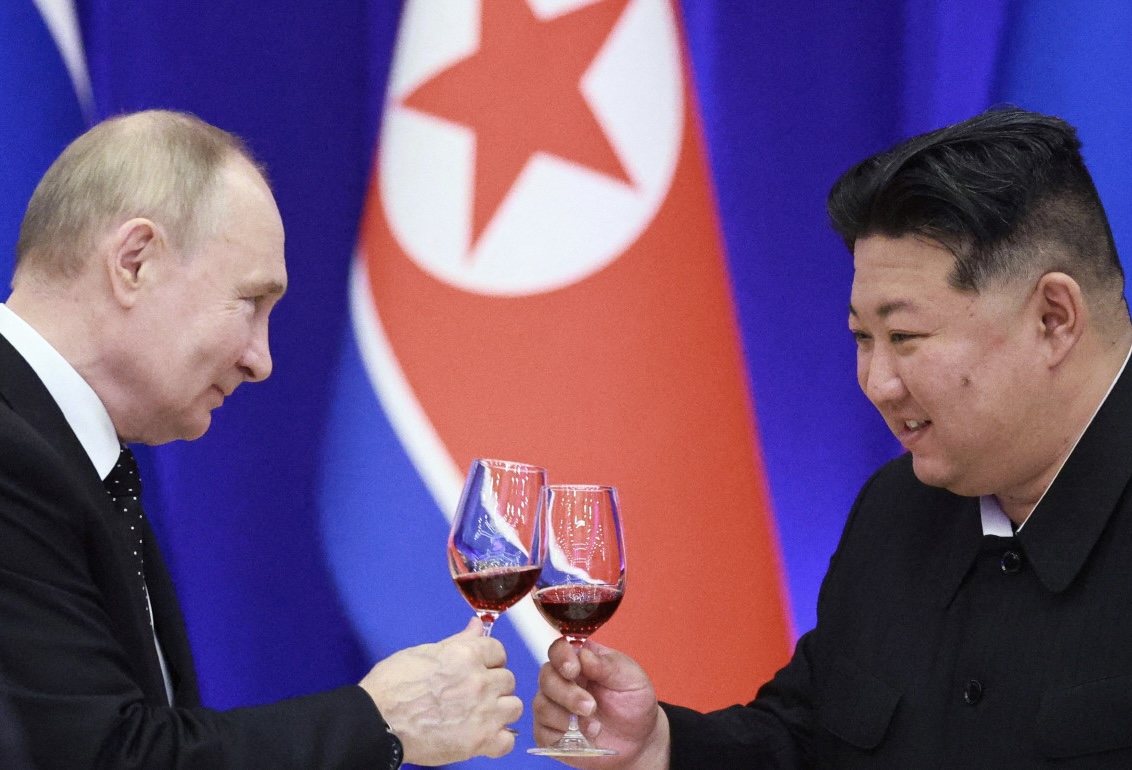North Korea earns US$ 20 billion from Russia for support in Ukraine
This is the estimate by the government-funded Korea Institute for Defense Analysis for North Korea’s shipment of weapons, men and technology to Russia. The supplies include 21,000 containers of weapons sent by sea. Between late 2024 and the start of 2025, North Korea sent almost 127,000 phishing emails to South Korean officials, journalists and researchers.
Seoul (AsiaNews) – North Korea has earned around US$ 20 billion by providing military support to Russia in its war against Ukraine, this according to a report by the Korea Institute for Defense Analyses (KIDA), a government funded South Korean think tank.
The KIDA’s study underlines the huge benefits Kim Jong-un's regime has reaped from supplying troops, weapons and ammunition (about US$ 19.2 billion), plus another US$ 630 million from technology transfers and 0 million for manpower.
Thanks to satellite and reconnaissance imagery, it was possible to see that North Korea has supplied Russia with around 21,000 containers of weapons and ammunition by sea — including 122mm and 152mm artillery shells, Bulsae-4 anti-tank missiles, KN-23 short-range ballistic missiles and RPGs. Additional shipments may have occurred via land and air routes.
In addition, Russia is reportedly paying at least 11,000 North Korean soldiers sent to fight in Ukraine, often without their knowledge, for a fee of about 2,000 dollars a month and a one-time bonus.
North Korea is also reportedly focusing on advanced military technologies and strategic weapons from Russia, including the possible transfer of components for nuclear-powered submarines and modern fighters.
North Korea may be looking for fourth-generation warplanes or even higher, given its aging fleet to face South Korea’s deployment of advanced fifth-generation F-35A fighters.
“Russia-North Korea military cooperation raises the possibility of Russian intervention in a Korean contingency and helps sustain the Kim regime during periods of regional instability,” said Park Yong-han, the KIDA senior researcher who authored the report.
For the expert, the international community should work to end the war between Russia and Ukraine and pursue diplomatic and defence initiatives in terms of deterrence to defuse further future cooperation between Moscow and Pyongyang.
North Korea and Russia have repeatedly denied Pyongyang's direct military involvement in Ukraine, while reiterating their right to engage in bilateral defence cooperation under the pact signed in June and ratified in November.
Meanwhile, North Korea is said to be behind a massive wave of phishing emails to South Koreans, the (South) Korean National Police Agency (KNPA) has reported.
The latter noted that a North Korean hacking group sent 126,266 fake emails to 17,744 people in South Korea from last November to January to steal their personal information.
The scam emails are classified into about 30 types, falsely promising to provide information on North Korean politics, concert tickets for famous singers, tax refunds, daily fortunes and health, the agency said.
One type of email falsely promised to reveal the Defence Counterintelligence Command's documents on former President Yoon Suk Yeol's 3 December martial law declaration, which was sent to 54 users in the South. The emails, if clicked, direct users to phishing sites that ask for the portal site's account ID and password.
Email recipients included government officials, researchers and journalists in the fields of unification, security, national defence and diplomacy and 120 of them had their portal site account information, email addresses and contact information stolen after accessing the phishing sites.
12/02/2016 15:14
17/11/2023 23:15
23/08/2005







.png)










